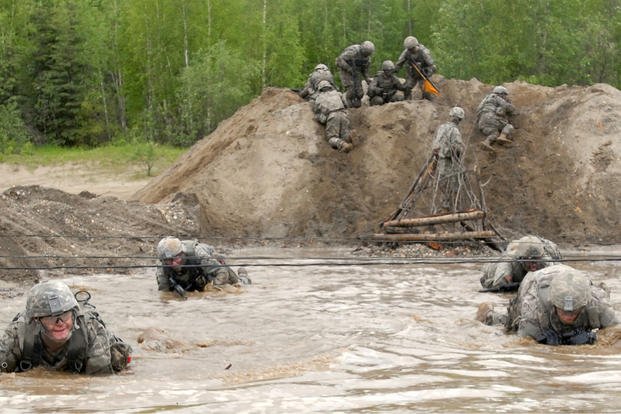Adding multiple training scenarios into a workout can enhance its benefits greatly by engaging the brain and adding easy-to-implement tactical skills. This can make the workout more fun and make some of the most basic skills more difficult by tiring and physically stressing your body.
Here is a sample method of integrating the mind and tactical skills into gym training sessions:
Random challenges that can be done during rest periods between high-intensity interval training (HIIT) sets to challenge your memory of common facts, survival skills, tactical skills and more.
- Various knots to tie (square, bowline, becket's bend, clove hitch, right angle, etc.)
- Flash cards or having a partner quiz you on math, history, words to define, foreign language, attention to detail, etc.
- KIM (keep in memory) games can be part of the workout, and between each set, you have to name something you observed at the beginning of the workout.
Creativity challenges can be added between moving from one exercise to another.
Learning to keep the creative part of the brain engaged during a rather monotonous, mind-numbing pyramid workout can enhance these skills when tired and stressed in a real-world situation.
- Set up a circuit outside or on a big open area (basketball court) with about 25-30 meters between events.
- For instance, pull-ups on one side of the field and push-ups on the other
- Start a pyramid of one pull-up, run 30 meters, two push-ups, run 30 meters; two pull-ups, run 30 meters, four push-ups, run 30 meters; three pull-ups, run 30 meters, six push-ups, run 30 meters. (So whatever pull-up number you are on, you double it for push-ups)
Keep progressing until you fail, but after the fifth set, you have to travel by any other method besides running. You cannot use the same one twice. Get creative and think about methods, such as the fireman carry, crawl, bear crawl, walking lunges, even cartwheels or forward rolls.
You can opt for easier options like walking and dynamic stretches. Just get creative with each set and stay focused on the reps and set of the pyramid. Keeping track of your set numbers gets tough enough when doing it on memory. (No writing anything down.)
You also can quiz others on how many pull-ups they have done so far. You have to add up 1, 2, 3, 4, 5 = 15 quickly, for example.
Adding knots to tie and random flash cards during this workout is a mental challenge, too.
Add attention-to-detail tests by dropping a piece of clothing or other object in the travel zone to see whether anyone noticed the "red shirt on set number six," for instance.
Try adding in tactical skills between sets as well. You can improve the realism of training greatly by shooting steady while physically tired, stressed and moving.
While exercising even moderately, you will find that remembering common facts, math and history is more difficult. Adding these types of skills (and there are many others) to a training plan only will enhance your ability to think and recall basic training/facts of long-term/short-term memory while active and stressed.
Having members participate as groups or in teams will help the team move and think together, communicate and build cohesion. The team tends to find hidden skills in each other when moving, communicating and thinking together as one. Get creative and develop challenges on your own that may seem easy during development, but you will see when tested while under physical stress, it takes work and time to figure these common knowledge tests.
Stew Smith is a former Navy SEAL and fitness author certified as a Strength and Conditioning Specialist (CSCS) with the National Strength and Conditioning Association. Visit his Fitness eBook store if you're looking to start a workout program to create a healthy lifestyle. Send your fitness questions to stew@stewsmith.com.
Want to Learn More About Military Life?
Whether you're thinking of joining the military, looking for fitness and basic training tips, or keeping up with military life and benefits, Military.com has you covered. Subscribe to Military.com to have military news, updates and resources delivered directly to your inbox.



















